Elderly falls: Wales action to cut costly home fractures
- Published
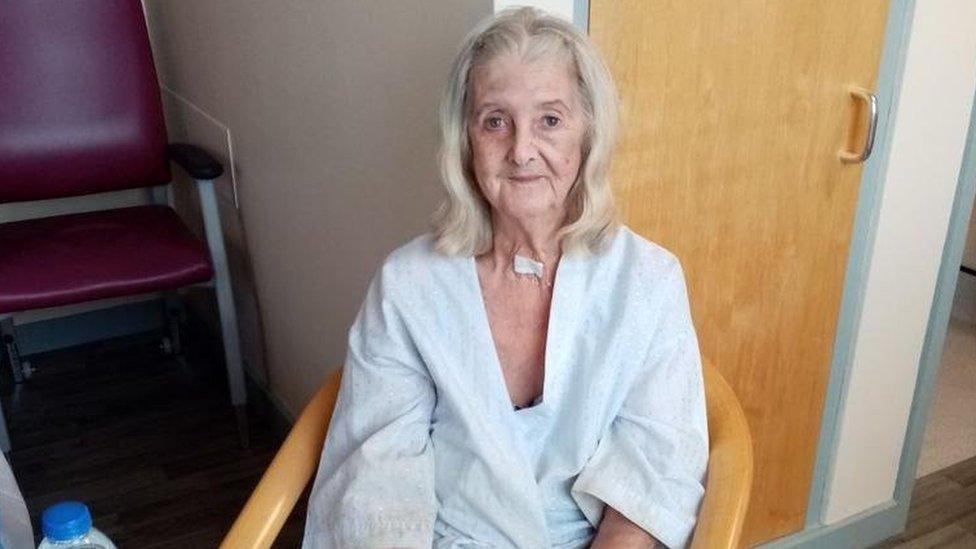
Euronwydd Godwin lost two-and-a-half stone while in hospital recovering from her fall
When Euronwydd Godwin fell down the stairs she punctured her lung, developed two brain clots and broke several bones.
Two years on with "every gadget you can think of" the 80-year-old advocates for fall prevention.
"If you put the money in, when that person comes out of hospital, with a bit of luck they won't go back in," she said.
It comes as a taskforce is teaching children to spot the risks at home.
"There's a lot more that we need to do - it's a major public health issue that we had for a long time just sat on," said Angharad Phillips, health initiatives officer with Age Cymru.
"We are appealing to children and families to look at their own lifestyle and what they can do. It's not for the NHS to pick up the pieces."
The charity, along with a range of other organisations, is part of the National Falls Prevention Taskforce Wales.
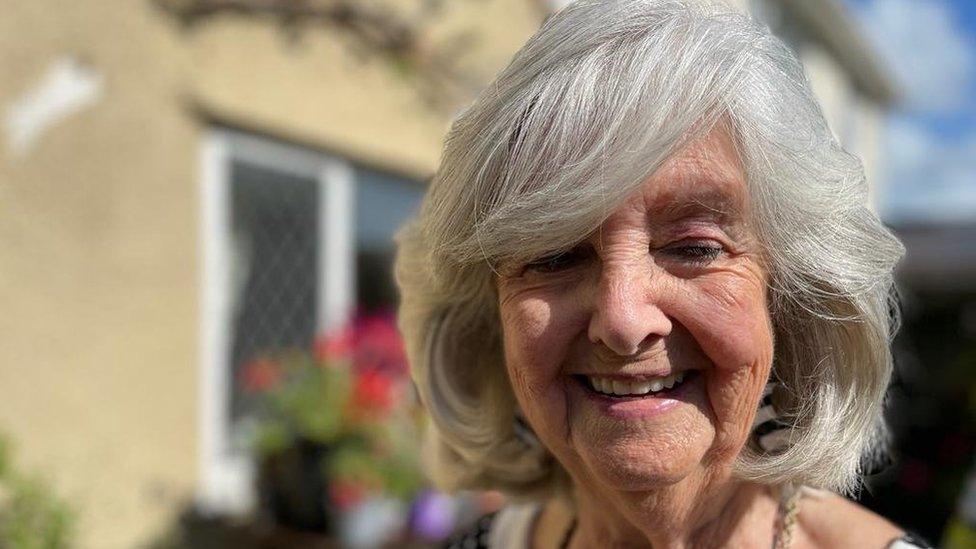
Euronwydd Godwin crawled upstairs on her elbows and knees to raise the alarm, after a fall two years ago
For Euronwydd - or Ronau as she is known to friends - the cause of the fall in the early hours at her home in North Cornelly in Bridgend county, wasn't clear.
Her family still can't quite comprehend how she commando crawled back upstairs to retrieve her phone and raise the alarm.
Her injuries were so severe, the retired nurse spent over a month in an induced coma at the major trauma unit at the University Hospital of Wales in Cardiff.
"We honestly thought she was never going to come out," said daughter Cheryl Evans.
A big part of Euronwydd's recovery was support from Care and Repair.
She said within a week she had been kitted out with gadgets to help her learn to live independently again.
"I couldn't even pick a saucepan up. They've given me a second chance of life."
According to the national clinical lead for falls and frailty, there are more than 4,000 hip fractures and 20,000 fractures of any bone which can have an "unmeasurable cost" in Wales.
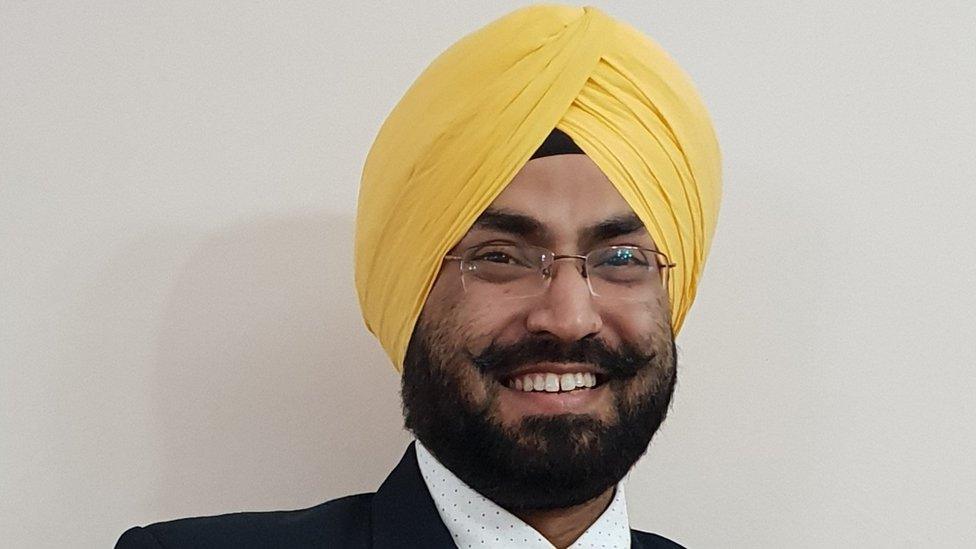
Dr Inder Singh says some patients are reluctant to say they have had a fall
"If somebody has a fracture there's a one-in-three chance they will sustain the next fracture in 12 months," Dr Inder Singh said.
"But if they are picked up by the appropriate services, which we are trying to introduce in Wales, this risk can be reduced by 35-40%.
"It's not the first fracture that causes major harm all the time, it's a subsequent fracture."
He said the goal is for all parts of Wales to have a fracture liaison service to help identify the first fracture and put the support in place.
He added that in the past three years progress has been made, with a third of those patients now identified, compared to just 9% in 2020.
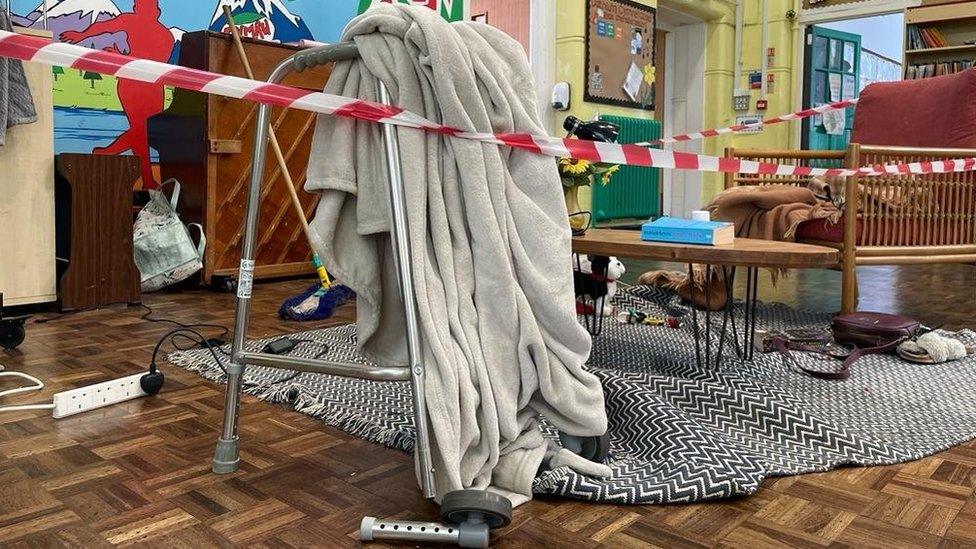
Pupils are asked to spot the risks in a typical home
But the stigma of admitting a fall seems to be an issue, said Ms Phillips.
She has been inviting children in schools across Wales to visit an interactive webpage containing a falls "incident scene".
Children at Ysgol Gynradd Gymraeg Pontybrenin in Gorseinon were shown a scene from a typical home and asked to turn detective to spot the risks.
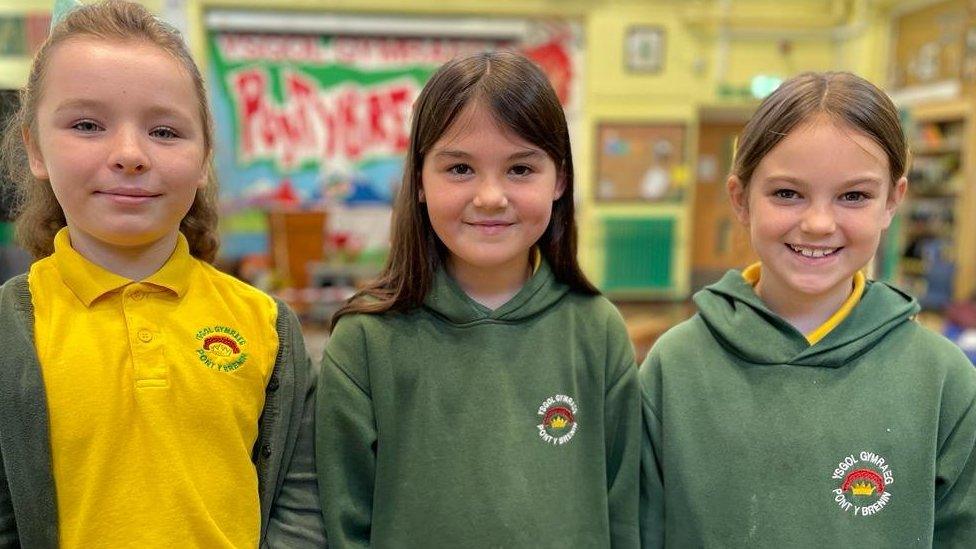
Nine-year-olds Alana, Rosie and Libby (l-r) have been learning how to spot trip hazards in the home
"I've learnt to help my nan and grandad to clean the house, so they don't trip over stuff and fall - if the carpet is folded over, and toys are on the floor, I'll pick them up," said nine-year-old Libby.
"It's something really good to learn and think about," said Alana, another pupil.
"When I go over to some of my relatives' house, maybe I could help them around the house if I see some things that could cause hazards."
- Published22 August 2023
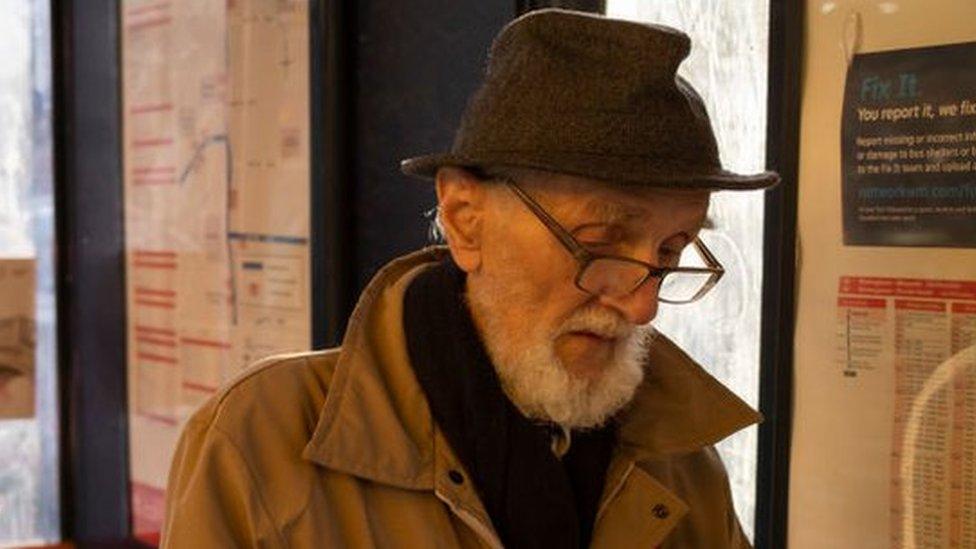
- Published7 September 2023
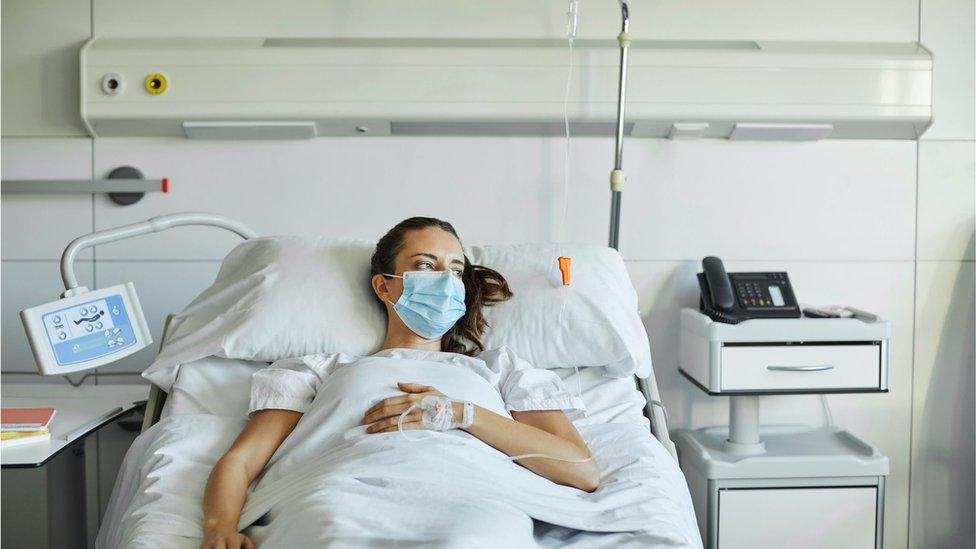
- Published14 June 2022
